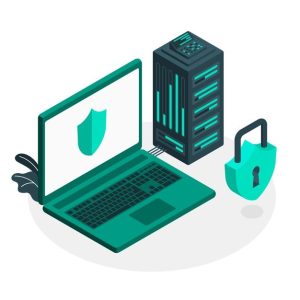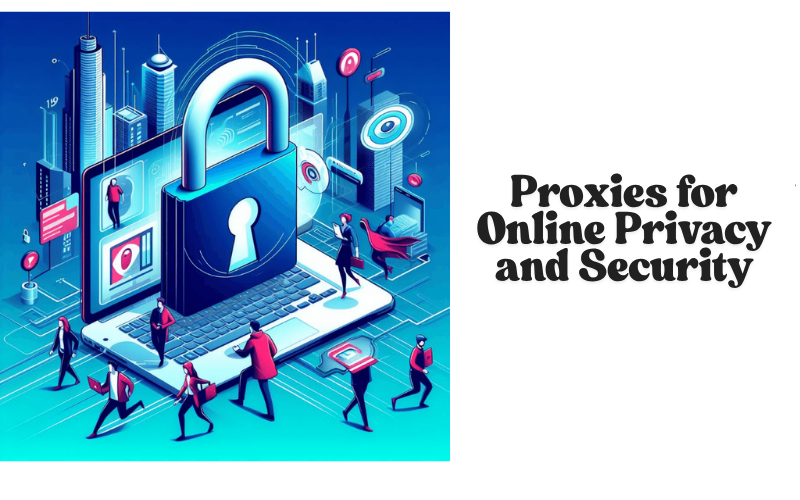Proxies for Online Privacy and Security

Learn how these tools work, their types, benefits, and real-world applications to improve your online privacy, security, and performance. Understand how they can help bypass restrictions and protect your digital identity.
As online threats and surveillance increase, protecting your privacy and security has become crucial. One effective tool for enhancing your digital security and anonymity is using an intermediary server. But what exactly are these servers, and how do they benefit you? This guide explores them in detail, explaining their uses and why they’re important today.
Link out: You can learn more about the importance of online privacy and security from Privacy International.
What is a Proxy?
An intermediary server routes your internet traffic between your device and the internet. Instead of directly connecting to a website, your traffic goes through this server. This allows the tool to provide functions like security, privacy protection, and bypassing restrictions.
When accessing a website through this type of server, only the server’s IP address is visible, not your own, adding an extra layer of anonymity to your browsing.
Link out: For a deeper explanation, check out Wikipedia’s page on Proxy Servers.
How Do Proxies Work?
Here’s a simple process of how an intermediary server functions during a browsing session:
-
Request forwarding: Your device sends a request to the server.
-
Processing: The server checks the request and forwards it to the target website.
-
Response forwarding: The website sends a response back to the server.
-
Response relay: The server forwards the response back to your device.
By doing this, the server hides your real IP address and ensures that the website interacts only with the server’s IP.
Link out: You can read more about how this works from TechCrunch.
Why Use a Proxy?
There are several reasons to use an intermediary server:
-
Privacy Protection: Hiding your IP address prevents third parties like websites, advertisers, or hackers from tracking you, keeping your browsing activities private.
-
Bypass Geographical Restrictions: Some content is restricted to certain regions. A server from another location allows you to access this content.
-
Enhanced Security: Proxies act as a barrier between you and the internet, filtering malicious traffic and offering protection from online threats and malware.
-
Web Scraping and Data Collection: Businesses use these tools to gather information from websites without triggering blocks.
-
Improved Performance: Caching frequently accessed content makes websites load faster, improving user experience.
Link out: Check out NordVPN’s guide for more information about online privacy.
Types of Proxy Servers
There are various types of these tools, each serving a specific purpose:
-
HTTP Proxy: Handles regular web traffic and is suitable for general browsing.
-
HTTPS Proxy: Provides encrypted connections for secure transactions.
-
SOCKS Proxy: Can handle all types of internet traffic, including email and torrents.
-
Transparent Proxy: Doesn’t hide your IP address and is often used for content filtering.
-
Anonymous Proxy: Hides your IP address completely, offering total anonymity.
-
Residential Proxy: Uses real residential IPs, making it harder to detect and block.
-
Datacenter Proxy: Provides fast connections but may be more easily blocked due to its origin from data centers.
Link out: Learn about the different types from ProxyMesh.
Real-World Applications of Proxies
These tools are used in various settings, from personal browsing to business operations. Here are some common applications:
-
Accessing Restricted Content: Tools like these allow access to geo-blocked content, such as streaming services by connecting to servers in other countries.
-
Market Research: Businesses use them to collect data from websites while remaining anonymous.
-
Securing Transactions: Proxies can secure financial transactions by masking your IP address, safeguarding personal details.
-
SEO and Web Scraping: Digital marketers and SEO experts use them to gather data, scrape search engine results, and monitor competitors.
Link out: For more on using these tools for web scraping, see Scrapy’s guide.
Are Proxies Legal?
In most countries, using these tools is legal as long as they are used responsibly. Engaging in illegal activities like hacking or fraud can result in legal consequences. Always check the terms of service of websites to ensure that proxy usage is allowed.
Link out: You can find more information on the legal aspects of using intermediary servers from Electronic Frontier Foundation (EFF).
Conclusion
In today’s digital world, intermediary servers play a key role in protecting online privacy, improving security, and optimizing performance. Whether for personal protection or business use, these tools offer significant benefits. By understanding their types and applications, you can make informed decisions about when and how to use them.
When considering proxies, it’s important to choose the right type for your needs and ensure you comply with applicable laws and site terms.
Link out: For a complete comparison of proxy services, check out Best Proxy Providers.

